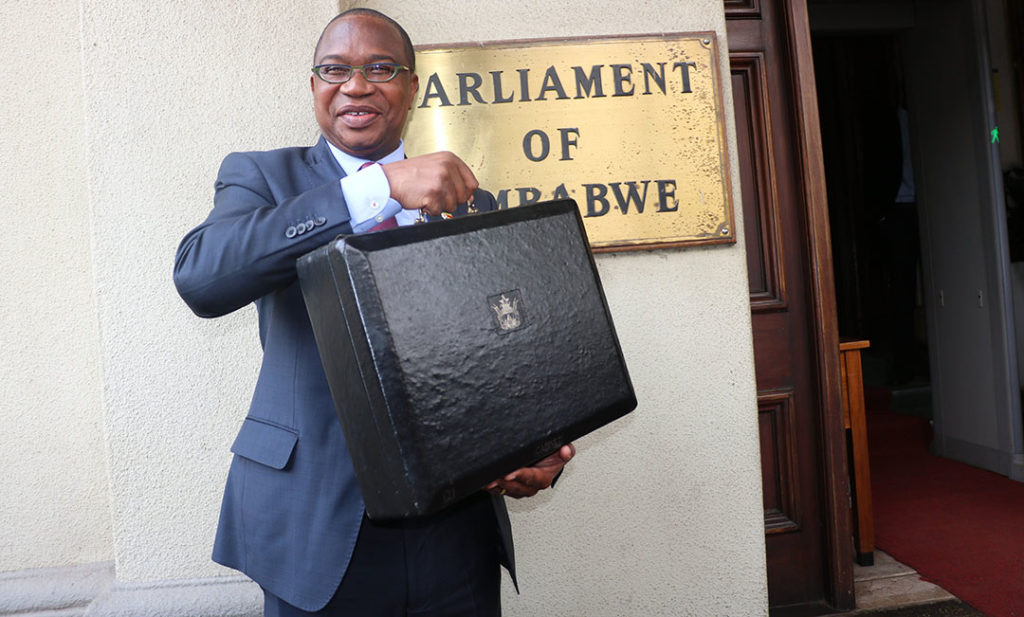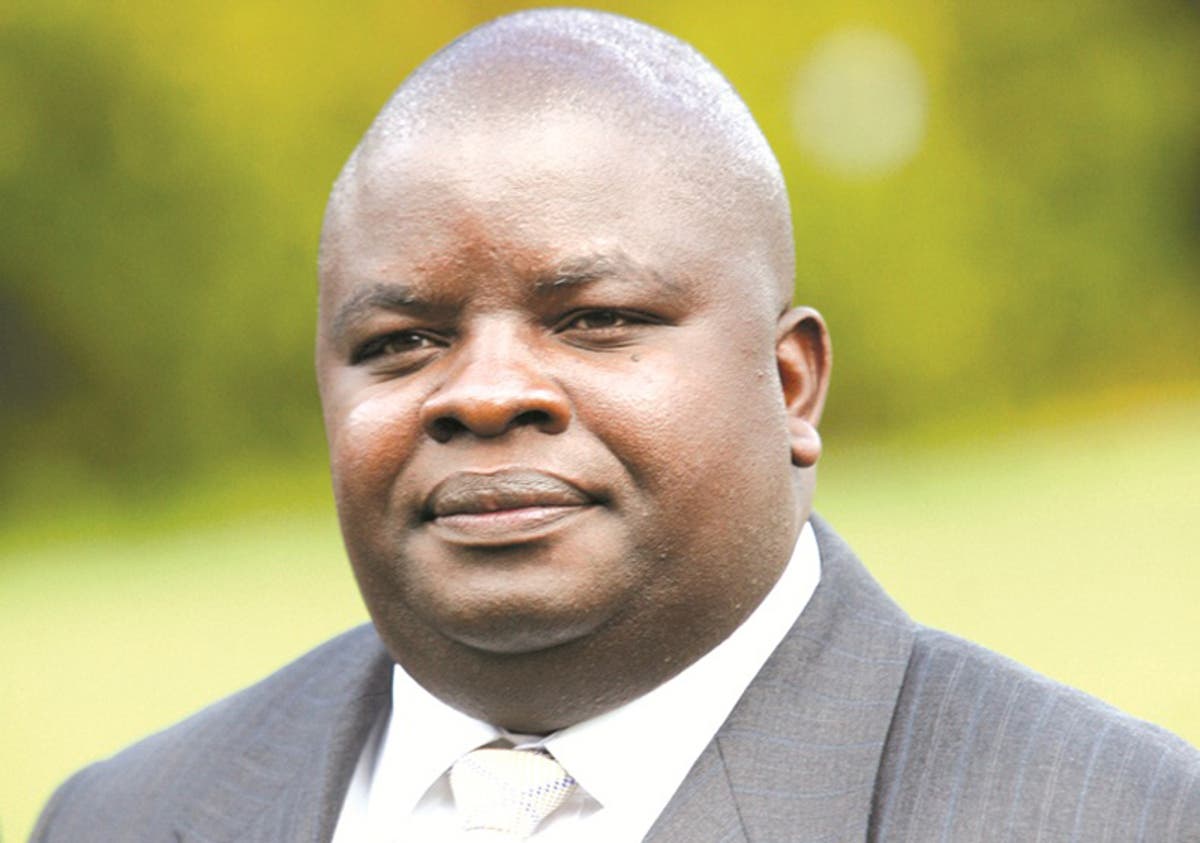By Tapiwa Mashakada
ON Thursday, November 24, Treasury proposed a $4.5 trillion (the total bids amounted to $21.8 trillion) budget to be allocated, inter alia, to the government departments and independent commissions.
The resources will be mobilised locally to the tune of $3.9 trillion in revenue in view of the fact that there is no vote of credit anymore owing to the debilitating sanctions imposed by the European Union and Britain over a diplomatic stand-off sparked by the land reform programme and alleged human rights abuses, bad governance and breakdown in the rule of law following the 2000 general elections and the 2002 presidential elections.
The potential nominal GDP of Zimbabwe is $21.8 trillion. Whatever the political differences, the EU and Britain had no right to impose illegal sanctions outside a resolution of the UN. Be this as it may be, sanctions have been blunted as Zimbabwe has managed to fund its economic transformation without foreign loans or aid.
This is very good because before sanctions, the country accumulated a whopping foreign debt to the tune of US$10 billion.
This plunged Zimbabwe into a debt trap, which adversely impacted socio-economic development and the current account. Zimbabwe needs investment, not aid. Therefore, as much as sanctions are illegal and should be removed, Zimbabwe must not keep crying because the country has done very well without IMF and World Bank loans.
Our unequivocal position as the MDC is that sanctions must be removed unconditionally. Secondly, Zimbabwe must engage and re-engage the international community. Thirdly, Zimbabwe must engage its citizens in national dialogue to address political and economic governance challenges which are common cause.

For as long as sanctions last, Zimbabwe should not look back, but continue to pull itself up with its own bootstraps. In our view, the 2023 budget confirmed the positive economic trajectory of Zimbabwe in the following areas: a positive current account balance of US$340.5 million since 2019, massive infrastructural projects such as the Harare-Beitbridge road, Modernisation of the Beitbridge Border Post, Expansion of the Robert Gabriel Mugabe International Airport, Refurbishment of Hwange 7 and 8 units, Gwayi-Shangani dam, among other infrastructural developments, buoyant growth in mining, services, construction and agriculture.
Diaspora remittances have also increased to breach the US$1 billion mark in 2022. Hence the economy will grow by four percent in 2022, slightly lower than the projected 4.8 percent growth rate. In 2023 the economy is poised to grow by 3.8 percent and record a 1.5 percent deficit. Nevertheless, the 2023 budget faces downside risks.
Firstly, inflation is unrelenting. The year on year figure dropped from 285 percent to 268 percent in 2022, but still remains in the hyperinflationary mode. This inflation tax has eroded fixed incomes, wages and salaries, thereby plunging 60 percent of the population into a vicious cycle of poverty. Secondly, the exchange rate is still volatile despite the narrowing of the gap between the official and parallel market rates.
The parallel market brews inflationary expectations in the economy and permanently creates inflationary pressures. The parallel market continues to create systemic shocks in the economy. Thirdly, the Zimbabwe dollar has been debauched by inflation and exchange rate depreciation. As a result, the economy is fast redollarising.
In fact all sectors of the economy are almost fully dollarised. Examples are the fuel industry, the property sector, the transport sector, the food sector, services, salaries (partial) and others. This has created a dual financial and payments system which the government is failing to address Fourthly, unemployment is rampant and the 2023 budget has no jobs plan.
In fact the economy has become more informal. Fifthly, despite the elimination of the budget deficit, the majority of the 2023 budget goes to recurrent expenditure, in particular to pay employment costs. The elephant in the living room is the lack of fiscal space. This is the major structural shock on the budget.
Yet Zimbabwe is losing billions of dollars by exporting raw minerals. Policy statements talk about beneficiation and value addition, but there is no implementation or political will to do so. The 2023 National Budget is geared to consummate the NDS1, which is in its midterm stage. However, there are too many inimical shocks that will derail the attainment of the NDS1 targets.

These shocks will come from the Russian-Ukraine war and its impact on food and energy prices, macro-economic shocks permeated by exchange rate volatility and hyperinflation, potential climatic shocks on agriculture and the 2023 elections which have the potential to draw unbudgeted resources.
The MDC recommends full dollarisation and the strengthening of the national sovereign wealth fund and an aggressive domestic resource mobilisation strategy based on beneficiation and value addition. The government must make more available resources towards increasing civil servants salaries and social protection.
The health care sector has collapsed and the budget must redirect more resources to fund public hospitals. The MDC recommends the removal of all barriers to ease of doing business so that the country can attract foreign direct investment and increase domestic investment. The MDC calls for more transparency and accountability in the execution of the national budget.
Finally, the MDC calls for an inclusive national dialogue that does not leave anyone behind as a vehicle to an inclusive and sustainable economy. The 2023 national budget is not cast in stone. The government must leave room for further engagement of non-state actors in order to improve service delivery, socio-economic development and macroeconomic stability.
One critical area for review is the issue of the rebate on basic commodities which will not be renewed. The government must continue to allow the importation of basic goods duty free in view of the deindustrialisation and low capacity utilisation.
All in all, budgetary allocations are a wish list. What matters is (a) efficiency in revenue collection (b) plugging revenue leakages and (c) timely disbursement of the budget resources to government ministries and departments.
- Mashakada is MDC Economic Advisor and deputy secretary general.






